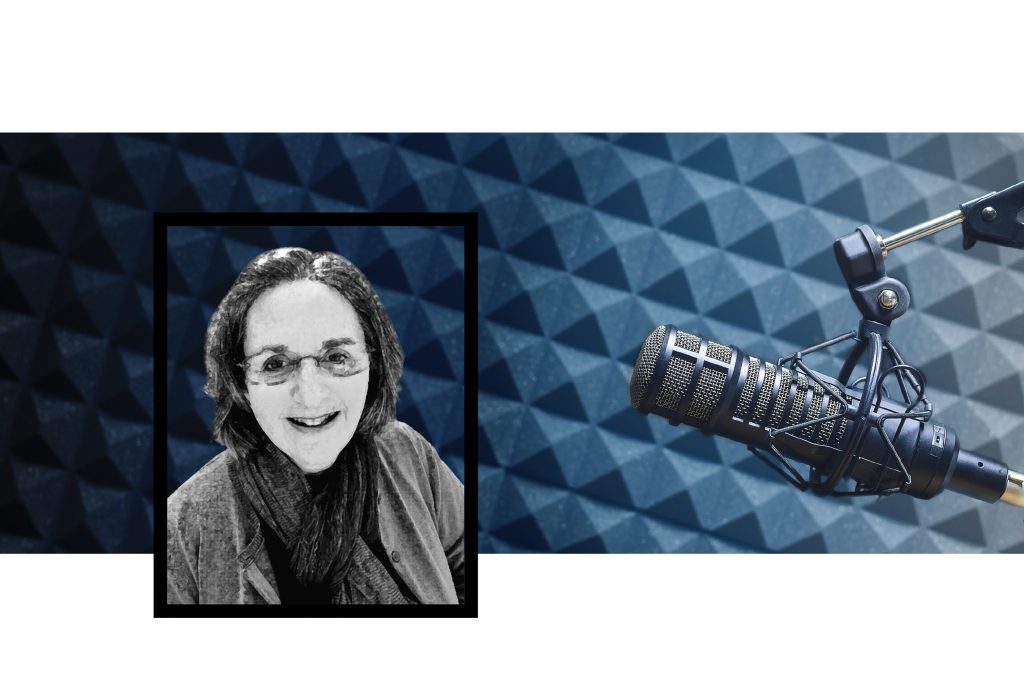Emmy-winning documentarian Nina Gilden Seavey was 12 years old in 1970 when her father, civil rights attorney Louis Gilden, represented several of the students arrested for burning down Washington University’s Air Force ROTC building in an anti-war protest. The defendants included Howard Mechanic, who would flee and become one of the longest-running fugitives in U.S. history. More than five decades later, Seavey has created My Fugitive, a podcast about her investigation into what happened and why. As part of the St. Louis International Film Festival, Seavey will present a special program on My Fugitive with Sarah Fenske of St. Louis Public Radio at 4 p.m. Nov. 13 at Washington University’s Brown Hall auditorium.
Where did your interest in documentary filmmaking originate?
I started in investigative news on television, but I didn’t feel satisfied. The news has to be objective, and I wanted the freedom to tell a story. Documentaries are very subjective; you really have your own voice. I started in historical documentary, which was a growing medium at the time. Ken Burns was just coming out with The Civil War. Before that, the genre was thought of as the kind of thing you had to watch in social studies class. It was like the broccoli of storytelling, but things were heating up in that area. My career has been very eclectic. I’ve covered art, dance, sports and politics. It can’t be characterized as one thing, but instead, it’s different pieces of life that interest me. I’ve been really lucky to find great stories to tell audiences.
How has being a St. Louisan shaped your perspective?
As I’ve gotten older, I’ve noticed that there’s such a focus in telling stories from the east and west coasts. How many stories about New York do we need? Why don’t we hear more from the midwest? People here lead interesting lives and have unique experiences, but they’re never shared. Later in my career when I could choose my own projects, I returned to my midwestern roots. I’ve always wanted to go into this unmined territory and explore some of those unheard voices and stories.
What made you decide to create a piece about your father’s case?
The issue of Howard Mechanic was something that preoccupied my father. True, it was a case he lost, but as a civil rights attorney in Missouri, he lost a lot of cases. Howard’s flight and the idea that there was something more going on really stuck with him. One of the last conversions I had with him was about Howard. And it wasn’t just Howard. All the defendants in this case were caught in a federal net that didn’t really exist elsewhere in the country. Protesters in Berkeley, New York and Madison didn’t face federal charges, and those were much larger protests. I just felt there was something under the surface that needed to be uncovered.
What did you learn from the experience?
I learned that if you’re going to go down the road of Freedom of Information Act requests, you need to be prepared to work for years. Professionally, I don’t think I have the time to embark on such a deep dive for a project again. It was 10 years of work. I started investigating on my own in the public domain, and then a couple years later in 2013, I filed my first request. In 2015, we filed suit against the federal government, and we won in 2017. The podcast came out this year. With a story like this, you have to be prepared to learn that you started on the wrong track. When I figured out Howard’s story was such a small piece of something much bigger, it was both exhilarating and frightening. I didn’t really know what I was dealing with any more. It’s not for the faint of heart.
Why did you decide to turn the project into a podcast?
As the story got more complex, I knew it would no longer work as a documentary. This was my first experience creating a podcast. I’ve always worked in a visual medium, and I was resistant to abandoning that for a very long time. But film is a very linear medium. It is resistant to complexity and digression, and you risk alienating your audience. I thought about a book first, but I had so much great archival material that I didn’t want to lose. As a medium, podcasts really inspire the imagination. It’s something I want to explore more. I’m working on another St. Louis story, and it also will be a podcast. It’s such a quirky, quixotic story that it needs to exist in the imagination.
What are you looking forward to about SLIFF?
It will be interesting to present something that isn’t a film. That’s not very common. Film festivals are like a second home to me. I was the founding director of Silverdocs, the American Film Institute’s documentary festival, and one year, we also had a strand of audio stories, so I know it can be done. I think it’s going to be fun. This also will be a homecoming for me, especially for this project. It’s like we’re returning to the scene of the crime.
